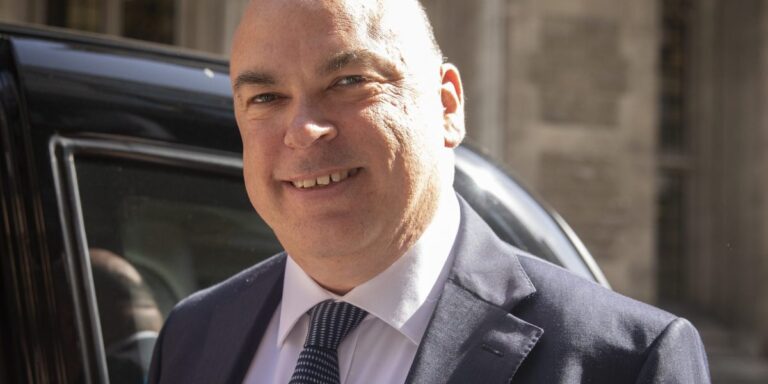Mike Lynch, the billionaire IT entrepreneur who died in a yacht disaster that claimed seven lives on 19 August, was once a well-known figure in the UK. A colourful character and self-made businessman, testimony in his recent court battle in the US may shed light on the controversial IT leader with an almost unbelievable rags-to-riches story.
Lynch was co-founder and former CEO of Autonomy, a software company that he sold to Hewlett-Packard in 2011 in a highly criticized deal for the company. HP had to write down $8.8 billion of the $11 billion purchase price and later accused Lynch and other executives of conspiring to defraud the company and falsifying documents to inflate the company’s value.
HP sued Autonomy and nearly won a civil trial in the UK. In a separate US criminal case, Autonomy’s former CFO, Sushovan Hussain, pleaded guilty to multiple counts of wire fraud and conspiracy and was sentenced to five years in prison. Lynch and Autonomy’s vice president of finance, Stephen Chamberlain, were also charged with conspiracy and fraud in a separate US criminal case. After a six-year legal battle that included a three-month jury trial in federal court in San Francisco, both men were acquitted in early June. Just a few months later, both men died in freak accidents on the same day, just a few miles apart.
Transcripts from Lynch’s criminal trial this year, in which he gave unusual self-defense testimony, reveal fascinating details about his life, including anecdotes from his childhood and early life. In answering questions from his criminal lawyer, Chris Morbillo, who was killed in a yachting accident, Lynch spoke about childhood experiences that helped shape his view of the world and offered insight into a man whose shocking death has drawn global attention.
Lynch’s childhood
Lynch, who was 59 at the time of his death, was born into a working-class Irish immigrant family living in East London but went on to study at the notoriously elitist Cambridge University, eventually earning a PhD in artificial neural networks. The son of a firefighter father and a nurse mother, Lynch’s life story suggests he lived the British version of the American Dream.
Explaining his parents’ financial difficulties, he told the jury, “Family legend has it that the day after they were married, they went to the bank manager begging for a loan of £4 (I think it was about $6). So we always joke in the family that we started off with negative $6, and that’s how we measured our debt.”
Lynch acknowledged his own good fortune, explaining how he won a scholarship to a prestigious private school for gifted students thanks to a Mayor of London in the 1600s. The Mayor in question was also a dry goods merchant (historically someone who sold cloth and curtains) who bequeathed his fortune “for the education of poor boys,” Lynch said.
“The great irony of life is that a man from the 1600s actually changed my life,” he said.
At age 16, Lynch got a job at a hospital through his mother, and the future business magnate started out mopping floors. “I’m a very… person who still loves mopping, so I can do that,” he says.
“Dr. Lynch, your credibility is being called into question,” said his lawyer, Morvillo.
“Give me the mop and I’ll show you,” Lynch replied. “It’s an art form,” he said, “but that’s another story.”
The exchange drew laughter from the courtroom, according to the transcript.
“Whatever you want to do, just do it”
Lynch eventually became a hospital porter, transporting people in bed in wheelchairs, and culminated in his career at the hospital as “the jam sandwich and tea guy,” according to his own account.
“And tea is a very important part of British culture,” he said.
“In the end, it turned out to be a very important job for me, very formative job,” he added.
The younger Lynch finished his shifts in geriatric wards, where nurses didn’t have time to talk to patients. “When I was 16, I thought I was invincible,” he recalled. “Then… you talk to a 95-year-old, and they know they’re never going to leave the hospital, and they tell you all these things that they wouldn’t tell anyone else. You hear about their lives, and you see what the trajectory of existence is, and it’s amazing.”
“Some days I’ll drive my cart around the corner and look down the hall and there’ll be empty beds,” Lynch continued. “And that’s what made me realize, just go for it, just go for it,” he said. “Whatever you want to do, just go for it.”
The man who has become known as Britain’s Bill Gates also commented on class. Lynch told his American audience that healthcare is universal in Britain and hospitals attract people from all walks of life. “You learn that you can’t judge people from afar. Someone who is very wealthy can sometimes treat you very nicely and sometimes treat you horribly, and someone who probably does a similar job to you can be a wonderfully kind person or a terrible person,” he told the court. “It depends on the individual.”
Later in his testimony, Lynch used an analogy to explain his interpretation of evidence presented by prosecutors about Autonomy’s alleged scheme to defraud Hewlett-Packard and lie to its auditors.
“Remember, even the cleanest kitchen, if you look under a microscope, you’ll find bacteria. That’s a fact. If they weren’t there, something very unusual would be going on. So I think Autonomy is no exception. [from other companies]” he said.
Of course, the prosecution disagreed. During the trial, defense lawyers tried to prove that Lynch and Chamberlain knew about Autonomy’s financial misconduct, using several pieces of evidence, including email messages from before and after the sale.
Finally, prosecutor Robert Leach told the jury that, unlike other witnesses in the case, “Dr. Lynch was, of course, the top brass at Autonomy. He was controlling and he was tyrannical.”
In the end, the jury was not convinced.


